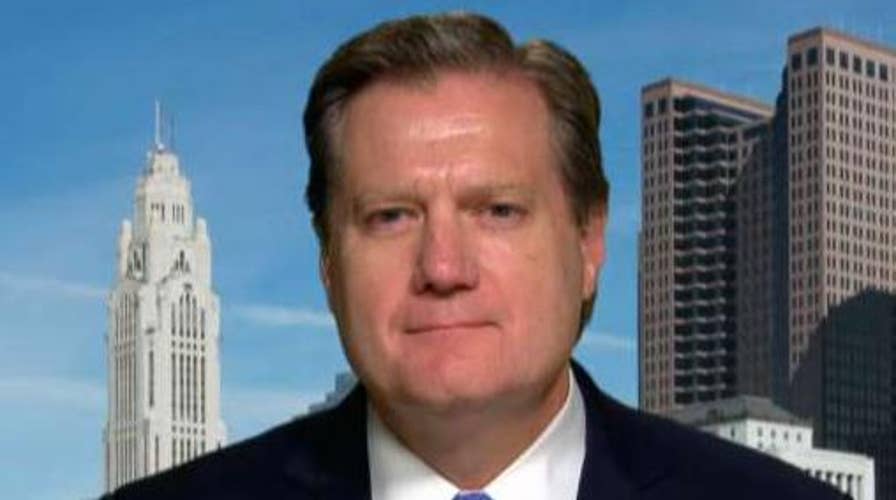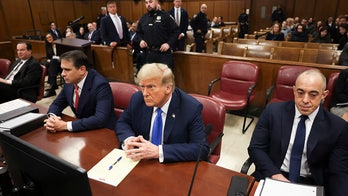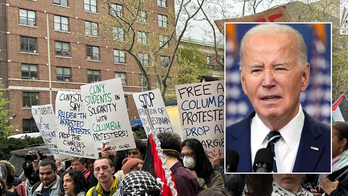Rep. Mike Turner: The president showed restraint
Ohio Republican Rep. Mike Turner says sanctions are having an impact on Iran's economy.
President Trump has promised new sanctions against Iran on Monday on top of what has already been a crippling "maximum pressure campaign," and Rep. Mike Turner, R-Ohio, discussed just how bad it could get for the Islamic nation's economy.
Turner said that the upcoming sanctions could hit "the heart" of Iran's economic system, with existing sanctions already expected to have a severe impact.
COTTON WARNS 'ATTACK ON A U.S. SHIP' WILL HAPPEN WITHOUT 'FIRM' RESPONSE TO IRAN
"The economy in Iran is reeling already from the sanctions that have been put in place before as part of the maximum pressure campaign," Turner told host Maria Bartiromo on Sunday Morning Futures. " The International Monetary Fund indicates that Iran's economy this year is expected to contract by six percent."
As for the new sanctions that Trump is expected to roll out on Monday, Turner said they could likely target Iranian oil exports, something "that goes right to the heart of really the engine of Iran's economy."
Turner then addressed whether the U.S. would have the support of European countries that are still buying oil from Iran. Turner pointed out that ongoing oil sales were only due to exceptions to sanctions that Secretary of State Mike Pompeo said will be closing, making the existing sanctions even tougher.
"The United States' ability to provide sanctions are really all pervasive, and that's why you're seeing such a huge impact on Iran's current economy," Turner said. "The Europeans do not really have an ability to sidestep those. They've already been announcing how it has been impacting their ability to do business with Iran."
Turner said that Iran could face even more sanctions from the European countries themselves if they follow through with a vow to increase their uranium enrichment in violation of the Iran Nuclear Agreement. While the U.S. backed out of the deal, the European nations who joined it are still involved.
PENCE: 'ALL OPTIONS REMAIN ON THE TABLE' AFTER NIXED IRAN STRIKE
Turner hopes that sanctions will eventually lead Iran back to the negotiating table, so the U.S. can enter into a new agreement.
"This is a goal, of course, to bring them to the table so we can renegotiate the nuclear deal, get one that's lasting and ensures that Iran never becomes a nuclear power," he said.
The Iranian response to the sanctions so far has been an escalation of threatening behavior. An attack on two oil tankers in the Strait of Hormuz, for which Iran denied responsibility, was followed by Iran shooting down an unmanned U.S. drone in international airspace in the same region.
Trump has so far shown restraint and resisted calls to strike back. Vice President Pence said Sunday that while the U.S. is currently maintaining their diplomatic approach, "all options remain on the table."




